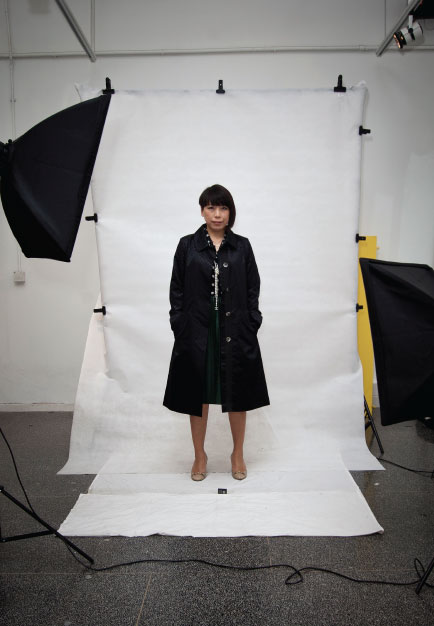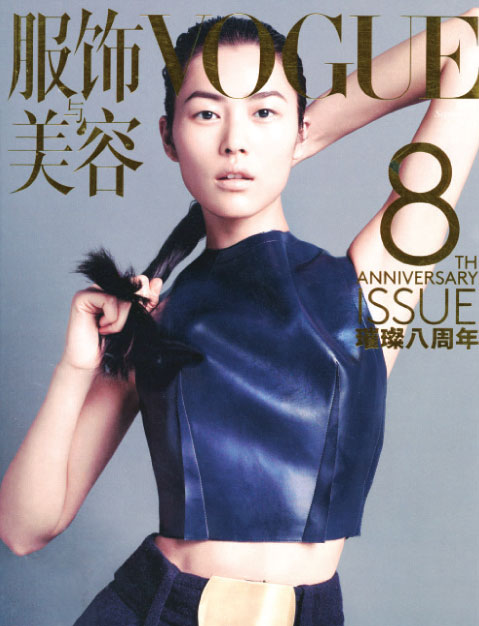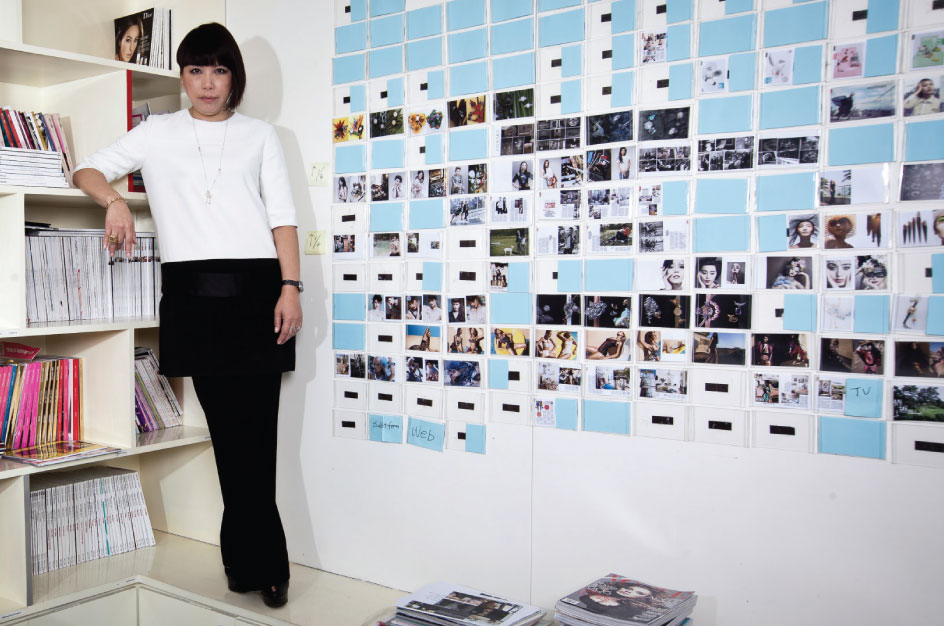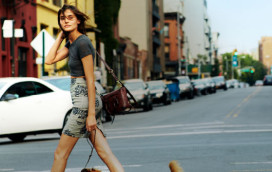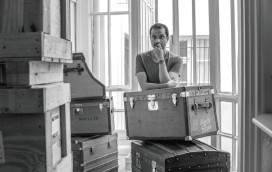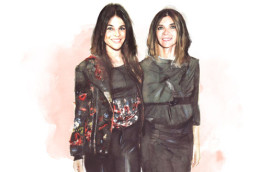How did you come to be editor of Vogue China?
Before I came to Vogue I was thinking seriously about quitting fashion journalism. I had been editor-in-chief at Marie Claire Hong Kong and Elle China, but although I studied law at university, I’d never practised it. I wanted to do something other than fashion journalism, because I thought I’d done it all. Then Condé Nast came calling. I mean, it’s Vogue. How could I say no?
Vogue China has a print and online readership of more than 1 million. Are you surprised by how successful it’s been?
Yes and no. China was tipped to be the next emerging market in fashion when we launched in 2005, and our launch issue sold out immediately, which was an encouraging sign! At the time, I said that if people are riding a horse, and you ask them what they need, they would say a very fast horse, until you show them the car. I think the time was right to show them the car.
Has the way Chinese women approach fashion changed since 2005?
Definitely. Their approach has matured at such a rapid rate. Obviously there are people who love the big brands and logos. But within the first- and second-tier cities, there is an incredibly sophisticated consumer base. These women travel extensively, they go to the shows in Paris, they buy couture. Women here like to look polished. They like beautiful handbags, lovely high heels, dresses and having their hair perfectly done. People don’t admire “casual chic” here so much. Having said that, vintage is really taking off lately. In Beijing and Shanghai, there are some very niche spenders: money is not an object, but they want to buy the right things. Some of them might buy only runway collections, for instance. Others are moving away from logo products; they feel that the newcomers from second- and third-tier cities are wearing those, so they want to show they have moved on.
Are Vogue editors friends or rivals?
There is a certain identity that is shared by being an editor-in-chief of Vogue, because it is the pinnacle of a career in fashion magazines. However, we work within very different markets, with very different readers, so at the end of the day we are very independent of each other.
The speed of change in China looks incredibly fast. Does it feel that way?
Yes. Even the architectural landscape around you changes at a rapid speed; buildings seem to come and go. However, when you live here for so long, you get used to change. People are accustomed to a very fast pace of life. Sometimes, when I go to Europe or to America, I’m like, “Oh, this is still the same as it was two years ago.”
Do you have a good work/life balance?
I used to work all the time, then a few years ago I had my daughter, Hayley. I really felt the impact of these choices that you make between work and family. It’s so important to give it your all in both aspects, and it’s something that I really try to do. Even though I travel so much, I often end up taking day trips to different continents so I don’t miss out on too much.
What are the best and worst things about living in Beijing?
Beijing is a difficult city to live in, with its infamous traffic and pollution, but it is the center of China, and that has its appeal. Parts of the old city, around the Imperial Palace, are very beautiful. It doesn’t have the cosmopolitan charm of Shanghai, but at the end of the day, the majority of the movers and shakers are here, so Vogue is, too.
How different is your daughter’s world to the one you grew up in?
I can’t even begin to tell you. My daughter has been travelling with me since she was a baby – she’s such a little jetsetter. We grew up with nothing by comparison: there was no fashion to speak of, no diverse cuisines or restaurants, nobody traveled anywhere. Now, new shopping malls are opening up everywhere, people are exposed to so much via the internet, and everybody is on their phones all the time. Hayley knows her way around an iPad, and she’s only six. That would have been unimaginable when I was growing up. I still have a picture of when I was a kid, holding Mao’s Little Red Book. My grandma was a tailor, and she made me some really tight black-and-white check trousers to wear to school. Everyone else was in a blue uniform. I loved my trousers, but when I went to school they whispered, “Bourgeoisie.” That was a very bad label. After that, I didn’t dare wear them ever again.
Would you ever consider giving up work to be a full-time mother?
I don’t think so. Much as I love my daughter, I would miss my hectic life. One benefit we have from Chairman Mao is his slogan, “Women hold up half the sky.” That era basically
lifted women to the same status as men. As a result, women of my generation feel that we have to work. It never occurred to us to stay at home. If I told my mom I wanted to stay at home, she would think my life a total failure. Maybe it’s nice sometimes to go to the spa and have your nails done, but I don’t think that’s me, and I don’t think it’s the majority of Chinese women.
Is there any job you would like to do after Vogue China?
I never thought I would be in this job this long: nine years now. Friends still tease me about it, because when I joined Condé Nast, I said I would probably stay for two years
and move on to something else once Vogue was successfully launched. But we just kept having new ideas. I always believe there is life after Vogue. Life is short. If one day I stop feeling inspired, I will move on to something else. But I don’t think I will go back to law now.
Where in America have you traveled? What do you like about the country?
I travel to America quite a lot, but I always go on business trips with packed schedules. I love New York – I like the energy, and I love how everybody there is very direct. They know what they want, and they’re not afraid to go after it.
How would you describe your personal style?
In this industry you’re forced to make choices about fashion every single day, and with a young child, and the school run in the morning, I really try to keep things simple. I love one-piece dresses, and Jason Wu always makes ones that are chic but comfortable for running around in all day. Accessories are great for making an outfit stand out, and Lanvin does such fun pieces. I have a particular weakness for coats, and I find the shapes from Marni work really well for me.
What was the inspiration behind your trademark asymmetric haircut?
It was really the notion of my hairdresser at the time. He said he had an idea for a cut and couldn’t think of anybody who could carry it off, apart from me. I said, “Go for it,” and it’s been this way ever since.
Are we going to hear more from Chinese fashion designers in the future?
We’ve always been very conscious about promoting Chinese designers since our first issue, but I must admit that, back then, it was a bit of a struggle to find anybody. Now, we have people like Masha Ma and Uma Wang who show at Paris and Milan. Huishan Zhang, who we’ve supported from the beginning, has a presentation during London Fashion Week and has just won the Dorchester Collection Fashion Prize. They’ve come so far over the past few years, and I think they’ll go even further.
Your address: The St. Regis Beijing
